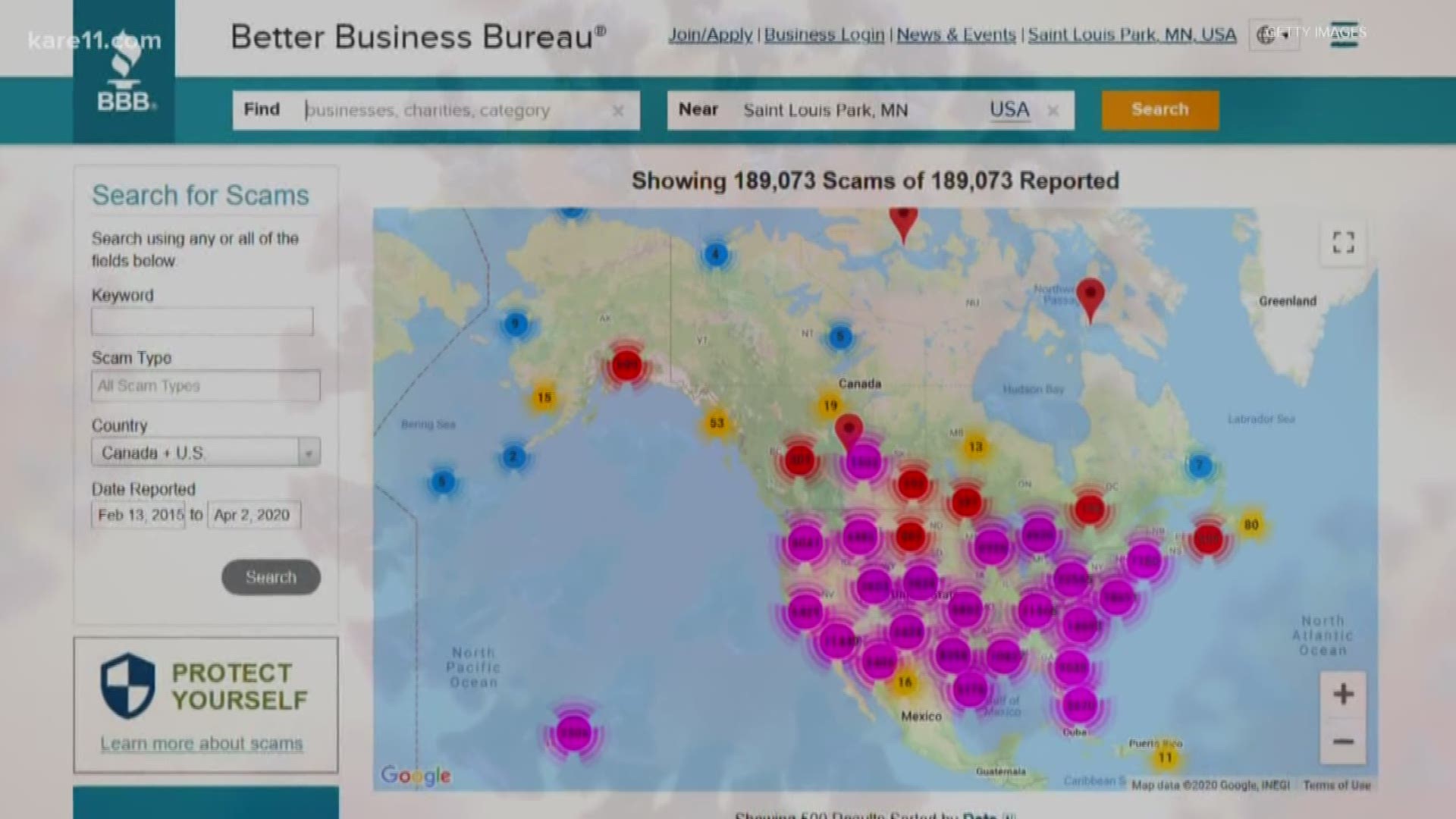FALCON HEIGHTS, Minn. — It's hard to think anyone would want to steal from others during this COVID-19 pandemic, but scammers are working hard to do just that.
The Better Business Bureau of Minnesota and North Dakota says it has seen a massive uptick in the number of coronavirus-related scams.
The BBB says our current situation creates a perfect storm for scammers. BBB Communications Director Bao Vang said it's because people are feeling socially isolated, which can make them feel financially and emotionally vulnerable. She also said we're spending more time online and we're distracted, so we might not spot a scam.
"When we're all feeling vulnerable with this situation, uncertain about what's going to happen with our jobs, with the economy, with our families, with our children's education, and it is so deplorable that anyone can even think about trying to take advantage of us in this time," Vang said.
In fact, Vang said there are 185 coronavirus-related cases that have been reported around the country, and undoubtedly more that were unreported.
Vang said that number may seem small but reports are up 600% from March 16. She said they expect the number to keep rising.
TOP FIVE SCAMS
- Fake sellers of masks
- Fake sellers of treatments or vaccines for the virus
- Someone posing as a person who works for charities
- Employment scams
- Stimulus check scams
No branch of government will connect with you over social media.
"We know that the government is not going to connect with you over social media," Vang said. She also warns the government will not ask for your social security number or your banking details over social media.
The government will not ask you to pay anything up front. "So anyone who's asking you to pay a deposit down or 'We need $1,000 now and we'll get you that $1,000 check later,' that is a scam," she said.
Vang said, generally, the older population is a target for these scams but right now everyone is vulnerable because of the current pandemic.
A red flag to watch for is any misspellings of words or the email address of the sender. If someone is claiming to be from a charity, do your own research and make sure the charity is actually seeking donations. Vang says we all need to be vigilant and report suspicious activity or scams.
You can track scams around the country and find other resources on BBB's website by clicking here.

